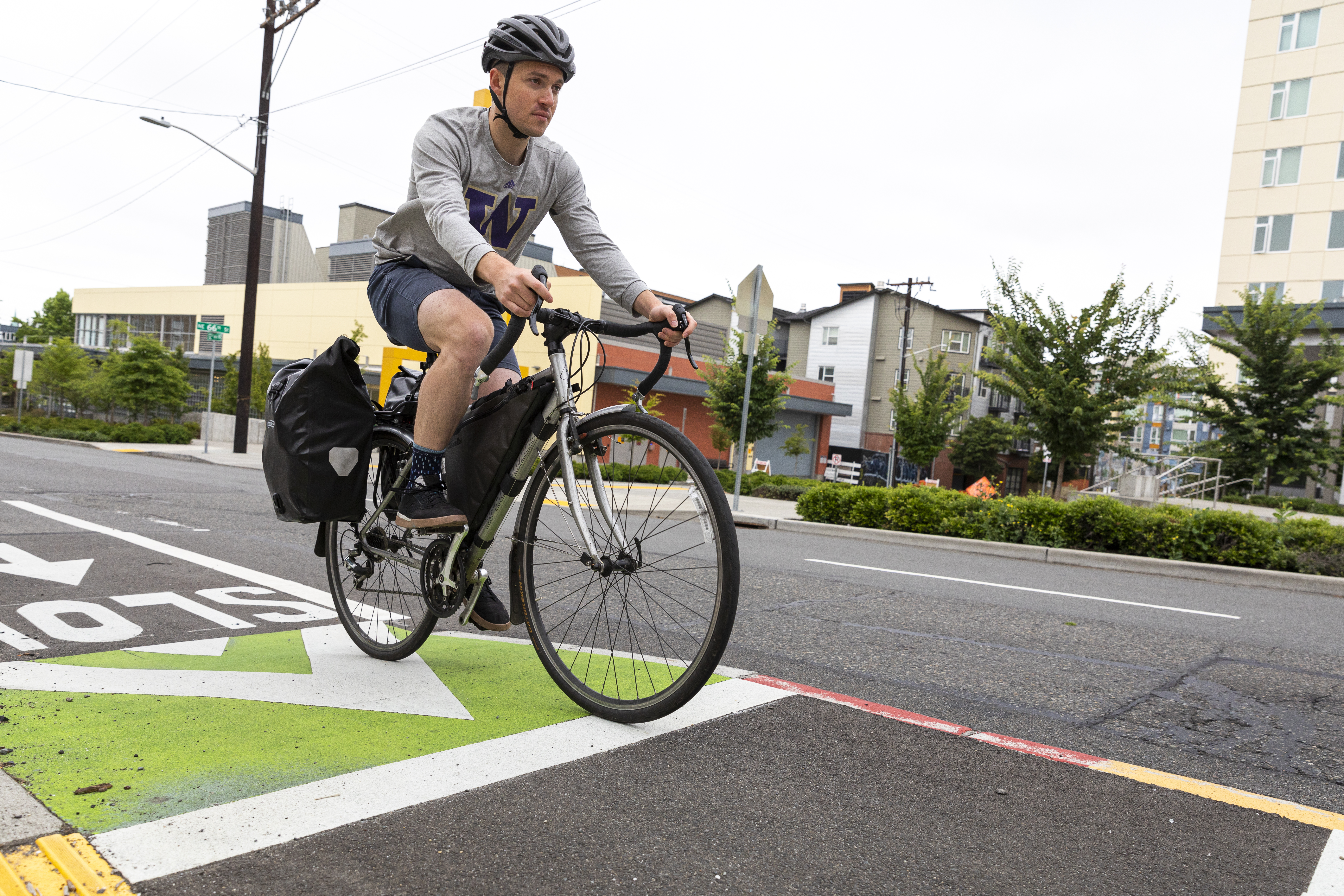December 15, 2023
A new paper by the Urban Freight Lab highlights the transformative potential of electric cargo bikes in reshaping urban logistics.

Photo credit: Mark Stone
The Urban Freight Lab unveiled its white paper "Biking the Goods" on October 17. The paper explores the transformative potential of electric cargo (e-cargo) bikes in revolutionizing urban freight systems across the United States. Providing actionable recommendations, the paper aims to accelerate the development of local bike infrastructure, an essential factor for the widespread adoption of e-cargo bikes.
“We are at a pivotal time in determining the role of cargo e-bikes in future urban logistics systems,” said Giacomo Dalla Chiara, Post-Doctoral Scholar for the Urban Freight Lab and lead author on the project. “Cargo e-bikes offer an opportunity for North American cities to reduce freight emissions and improve road safety, but economic, legal, and infrastructural barriers have slowed their adoption. As a collaborative cross-sector research hub, the Urban Freight Lab is pleased to partner with leading bicycle industry brands and public stakeholders to develop a roadmap for U.S. cities to overcome obstacles and pave the way for widespread adoption of cargo e-bikes.”
As cities face rising challenges related to traffic congestion and environmental degradation, the release of this white paper offers a timely blueprint for policymakers, city planners and climate activists. It makes a compelling case for the integration of e-cargo bikes into urban freight logistics, focusing not only on the reduction of greenhouse gas emissions but also on the alleviation of traffic woes and the improvement of road safety. Emphasizing the need for protected bike lanes, the paper advocates for the safety of all road users, including commercial e-cargo bikers.
Funded by industry heavyweights like Bosch eBike Systems, Fleet Cycles, Gazelle USA, Michelin North America, Inc., Net Zero Logistics, Seattle Department of Transportation and Urban Arrow. and supported by People for Bikes, the paper has already caught the attention of key stakeholders involved in bicycle manufacturing, freight logistics and municipal planning.